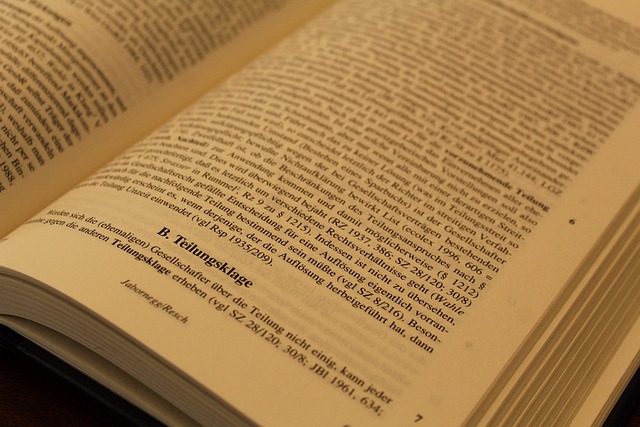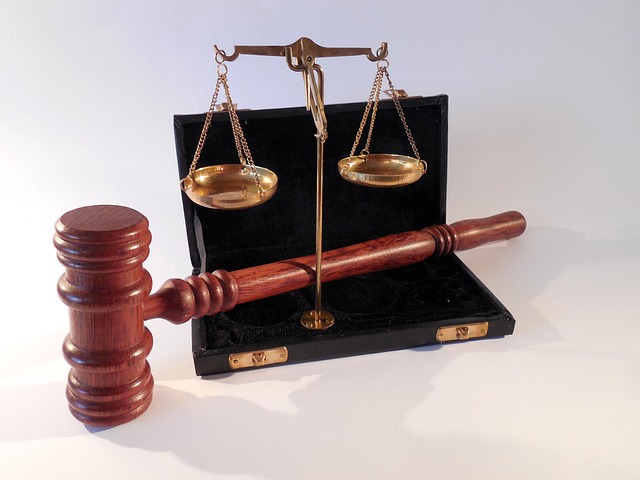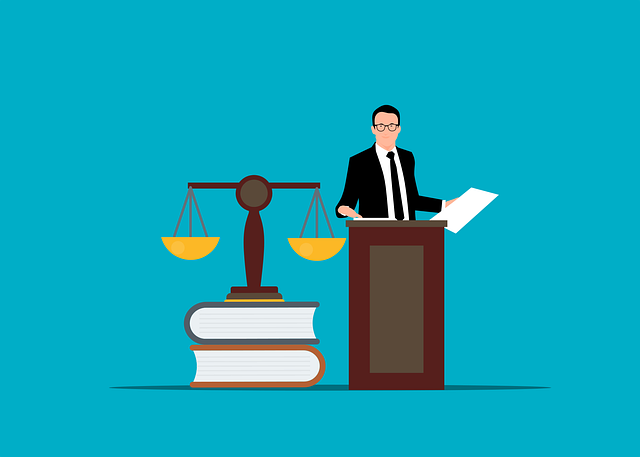
Category: Arvada Colorado Criminal Defense
Arvada Colorado Criminal Defense: A Comprehensive Overview
Introduction
Welcome to an extensive exploration of Arvada, Colorado’s criminal defense system—a topic that lies at the intersection of law, justice, and community safety. This article aims to dissect and demystify the intricate world of criminal defense in a specific urban setting, offering readers a comprehensive understanding of its mechanisms, challenges, and future potential. By delving into this subject, we hope to provide valuable insights for both legal professionals and residents interested in the complex interplay between law enforcement and community well-being.
Understanding Arvada Colorado Criminal Defense
Definition and Core Components
Arvada Colorado Criminal Defense refers to the collective efforts of legal professionals, law enforcement agencies, and community organizations aimed at safeguarding the rights of individuals accused of criminal offenses within the city limits of Arvada. It encompasses a range of services and strategies designed to ensure fair treatment, protect constitutional rights, and offer effective representation throughout the criminal justice process.
The core components include:
-
Legal Representation: Criminal defense attorneys play a pivotal role by providing expert legal advice, advocating for their clients’ rights, and guiding them through complex legal procedures.
-
Pre-Arrest Advice and Strategies: This involves helping individuals understand their rights, offering strategies to avoid potential legal pitfalls, and providing guidance on how to interact with law enforcement during stops or investigations.
-
Investigative Techniques: Defense attorneys collaborate with investigators to gather evidence, challenge the prosecution’s case, and ensure the accuracy and admissibility of information presented in court.
-
Courtroom Advocacy: A crucial aspect where lawyers represent their clients, cross-examine witnesses, present mitigating factors, and argue for favorable outcomes during trials or hearings.
-
Community Outreach and Education: Many defense organizations engage in community initiatives to promote legal literacy, assist at-risk populations, and foster a better understanding of criminal justice issues among Arvada residents.
Historical Context and Significance
Arvada’s criminal defense system has evolved over the years, reflecting broader societal changes and legal reforms. Historically, the focus was primarily on punishment and deterrence, mirroring the ‘tough on crime’ mentality prevalent across the United States. However, a significant shift occurred in the late 20th century, driven by growing concerns about mass incarceration rates, racial disparities, and the need for more compassionate and effective justice systems.
In recent decades, Arvada, like many other cities, has embraced a more holistic approach to criminal defense, emphasizing rehabilitation, diversion programs, and alternatives to incarceration. This transformation reflects a broader movement towards evidence-based policies and a recognition of the impact of systemic issues on marginalized communities. The significance of robust criminal defense cannot be overstated, as it ensures that all individuals, regardless of background or circumstances, receive fair treatment under the law.
Global Impact and Trends
International Influence
Arvada’s criminal defense practices have global implications due to the city’s diverse population and its position within the broader Colorado legal framework. The state of Colorado is known for its progressive criminal justice policies, which have influenced other jurisdictions worldwide. For instance, Colorado’s innovative approach to drug policy, including the legalization of recreational marijuana, has sparked international interest and inspired similar experiments in various countries.
Global Trends Shaping Criminal Defense
Several global trends are shaping the landscape of criminal defense:
-
Decriminalization and Legalization: Many countries are reevaluating their approaches to substances like cannabis, psychedelics, and certain controlled substances, leading to changes in legislation and a shift from criminal punishment to regulated frameworks.
-
Diversion Programs: There is a growing emphasis on diversionary programs that offer alternatives to prosecution for non-violent offenders, focusing on rehabilitation and community reintegration instead of incarceration.
-
Technology Integration: The use of technology in law enforcement and criminal justice is on the rise, presenting both opportunities (e.g., efficient record-keeping) and challenges related to privacy and data security.
-
Racial and Social Justice Movements: Global movements like Black Lives Matter have prompted a critical examination of systemic racism within criminal justice systems, leading to calls for reform and increased accountability.
Regional Variations
The impact of these trends varies across regions, influenced by cultural, political, and socio-economic factors:
-
Northern Europe: Known for its progressive social policies, countries like Sweden and Norway have robust welfare systems and alternative sentencing options, resulting in lower incarceration rates.
-
North America: The United States and Canada have seen a mix of trends, with some states/provinces embracing decriminalization while others maintain stringent criminal laws.
-
Asia: Countries like Japan and South Korea have unique legal traditions and focus heavily on rehabilitation and community service as alternative punishments.
Economic Considerations
Market Dynamics
Arvada’s criminal defense market is a vital component of the city’s economic ecosystem, employing a significant number of professionals and contributing to the local economy. The demand for legal services fluctuates with various factors:
-
Crime Rates: Higher crime rates often lead to increased demand for criminal defense services.
-
Legal Changes: New legislation or policy shifts can create both challenges (e.g., adapting to new laws) and opportunities (e.g., specializing in emerging areas of law).
-
Demographic Shifts: Changing demographics, such as an aging population or influx of immigrants, may require tailored legal services.
Economic Impact
The economic impact includes:
-
Legal Services Revenue: Criminal defense firms generate revenue through fees for legal representation, consulting, and other related services.
-
Employment and Job Creation: These practices provide employment opportunities for attorneys, paralegals, investigators, and support staff, contributing to local job growth.
-
Support Industries: Related businesses, such as legal publishing, technology providers, and legal aid organizations, also benefit from the criminal defense sector’s activities.
Exploring Technology Integration
Benefits and Challenges
Technology plays a dual role in Arvada’s criminal defense landscape:
Benefits:
- Efficient Case Management: Digital case management systems streamline processes, improve organization, and enhance communication between legal professionals and clients.
- Legal Research: Online legal databases provide quick access to relevant case law, statutes, and regulations, aiding attorneys in research and strategy development.
- Remote Communication: Video conferencing tools enable remote consultations, making legal services more accessible to those who may face barriers due to mobility or geographical distance.
Challenges:
- Privacy Concerns: The digital nature of legal practices raises privacy and data security issues, requiring robust cybersecurity measures to protect sensitive client information.
- Digital Divide: Ensuring equal access to technology for both legal professionals and clients is essential to avoid exacerbating existing disparities.
- Cost Implications: Implementing and maintaining advanced technological systems can be expensive, potentially creating financial barriers for smaller law firms or individuals.
Challenges and Future Directions
Overcoming Barriers
Arvada’s criminal defense system faces several challenges that require continuous evaluation and adaptation:
-
Resource Allocation: Securing adequate funding for public defender offices and legal aid organizations is crucial to ensure access to quality legal representation for all.
-
Systemic Inequalities: Addressing racial, socioeconomic, and gender disparities within the criminal justice system remains a persistent challenge, requiring ongoing efforts to promote fairness and equity.
-
Mental Health Integration: Integrating mental health services into criminal defense practices is essential, as many individuals with untreated mental illnesses end up in the criminal justice system.
Future Potential
The future of Arvada’s (and broader Colorado’s) criminal defense lies in:
-
Holistic Approaches: Embracing models that consider the whole person—their background, health, and social circumstances—can lead to more effective interventions and reduced recidivism rates.
-
Data-Informed Policies: Utilizing data analytics to identify trends and patterns in criminal behavior can inform policy decisions, resource allocation, and program development.
-
Community Collaboration: Strengthening partnerships between law enforcement, legal services providers, and community organizations can foster a more cohesive approach to crime prevention and justice.
Conclusion
Arvada Colorado Criminal Defense is a dynamic field that reflects the city’s values, challenges, and evolving societal norms. By understanding its mechanisms, trends, and potential, residents, policymakers, and legal professionals can contribute to a fair, efficient, and compassionate criminal justice system. As the world continues to grapple with complex issues of justice, equality, and safety, Arvada’s experience offers valuable insights into creating more resilient communities through robust and equitable criminal defense practices.









